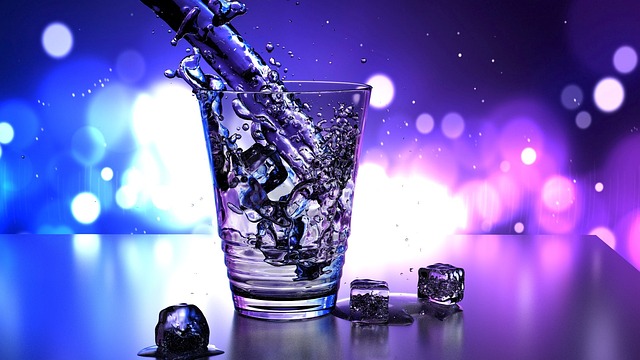Cold water immersion therapy, including practices like cold plunges and ice baths, offers a range of physical and mental health benefits. Athletes commonly use it post-workout for muscle recovery, inflammation reduction, and endorphin stimulation. As an alternative to cryotherapy, cold exposure aids in stress relief, improved immune function, and overall well-being. This accessible therapy is gaining popularity for its ability to enhance performance, reduce injury risk, and optimize health among athletes and everyday individuals alike.
Discover the ancient secret to stress reduction and improved well-being with cold water immersion therapy. This powerful practice involves submerging yourself in cold water, offering a range of beneficial effects from enhanced recovery to better athletic performance. In this article, we explore the science behind cold water’s impact on stress, delve into various cold plunge techniques, and uncover why it’s becoming a game-changer for both athletes and those seeking effective relaxation methods, serving as a promising cryotherapy alternative.
Understanding Cold Water Immersion Therapy: Unlocking the Ancient Practice
Cold water immersion therapy, also known as cold plunge therapy or ice bath therapy, is an ancient practice that involves submerging oneself in cold water, typically below 59°F (15°C), for a short period. This therapeutic technique has gained popularity not just among athletes but also as a stress reduction and mindfulness tool in today’s fast-paced world. The benefits of cold water immersion are vast, from accelerating muscle recovery after intense workouts to reducing inflammation and boosting the immune system.
As a cryotherapy alternative, cold water exposure triggers a series of physiological responses in the body. It causes blood vessels to constrict, reducing blood flow to the extremities and core, which in turn lowers metabolic rate and body temperature. This process helps flush out metabolic waste products and reduces lactic acid buildup, leading to faster recovery times for athletes. Moreover, cold water therapy acts as a powerful stress reliever by stimulating the release of endorphins, often referred to as “feel-good” hormones, which can help alleviate anxiety and promote mental clarity. This ancient practice, when incorporated into modern wellness routines, offers a simple yet effective way to enhance overall well-being and resilience.
The Science Behind Cold Water's Powerful Benefits for Stress Reduction
The Science Behind Cold Water’s Powerful Benefits for Stress Reduction
Cold water immersion therapy, such as taking a cold plunge or ice bath, has gained popularity as an effective stress reduction technique. When the body is exposed to cold water, it triggers a physiological response that can significantly lower stress levels. The sudden cold temperature causes blood vessels to constrict, reducing blood flow to extremities and diverting it to vital organs. This process initiates the body’s natural ‘fight or flight’ response, but instead of causing anxiety, it promotes a sense of calm and relaxation once the body re-warms.
Research has shown that cold water therapy stimulates the release of endorphins, often referred to as ‘feel-good’ hormones, which act as natural painkillers and mood elevators. It also enhances the activity of the parasympathetic nervous system, responsible for the ‘rest and digest’ functions, thereby reducing heart rate and blood pressure. These physiological changes create a state of profound relaxation, making cold water immersion an appealing alternative to traditional cryotherapy or extreme methods like ice baths, offering easier access and more comfortable experiences for stress relief and recovery among athletes and everyday folks alike.
Cold Plunge Therapy Techniques and Their Impact on Recovery and Health
Cold Plunge Therapy Techniques and Their Impact on Recovery and Health
Cold water immersion therapy involves submerging oneself in cold water, typically below 59°F (15°C), for a set period. This practice, also known as ice bath therapy or cold plunge therapy, offers numerous benefits for both physical and mental health. Athletes often use cold water immersion for quick recovery after intense workouts, as it helps reduce muscle soreness and inflammation, speeding up the body’s natural healing process. The shock of cold water triggers a response from the nervous system, releasing endorphins and promoting a sense of calm. This makes cold plunge therapy an excellent alternative to cryotherapy, offering similar stress-reducing effects without the same level of extreme cold exposure.
Additionally, regular cold water immersion can improve circulation by stimulating blood flow to the skin’s surface, ensuring oxygen and nutrient delivery to muscles and organs. It has also been shown to boost the immune system, reduce inflammation throughout the body, and enhance overall resilience to stress. Many people incorporate cold plunge therapy into their daily routines as a simple yet effective way to manage stress and promote well-being, with some even taking cold showers or dips as a morning ritual to set a refreshing and invigorating tone for the day ahead.
Exploring Cold Water as a Game-Changer for Athletes' Performance and Well-being
Cold water immersion therapy has emerged as a game-changer for athletes, offering a range of benefits that extend beyond immediate performance enhancement. By subjecting the body to brief periods of cold exposure, such as a cold plunge or ice bath therapy, athletes can experience accelerated recovery after intense training sessions. This is attributed to the reduction in muscle inflammation and the stimulation of the release of endorphins, natural painkillers, and mood elevators.
The practice, often referred to as cold water health benefits, serves as a powerful cryotherapy alternative, providing an effective yet accessible way to support physical well-being. For athletes, incorporating cold exposure therapy into their routines can be a simple yet effective strategy to improve performance and reduce the risk of injury. It’s not just about tolerating the chill; it’s about harnessing the body’s response to cold water as a means to optimize athletic potential and promote overall health.
Cold water immersion therapy, with its ancient roots and modern scientific backing, offers a multitude of stress-reducing benefits. From enhancing athletic performance to expediting recovery, cold plunge techniques are gaining popularity as effective, accessible alternatives to cryotherapy. By incorporating these practices into daily routines, individuals can unlock the powerful effects of cold water, fostering mental clarity, physical resilience, and an improved overall well-being.
